This year, the theme of the European Days of Jewish Culture is “Renewal”. A theme well adapted to our time of political and health uncertainties, but also in reference to beautiful attempts to enable Jewish culture to live (again) in the big cities and small villages of Europe. Here’s our interview with Thierry Koch, President of the European Days of Jewish Culture and Heritage – France.
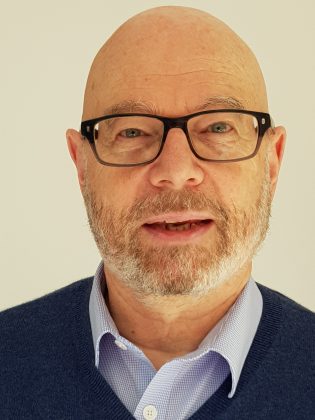
Jguideeurope : What does the theme of “renewal” chosen this year mean to you?
Thierry Koch : These Days, as their name indicates, are European Days organized simultaneously in more than thirty European countries. For me, it is impossible to think of these Days in a purely French context. Therefore, the word “renewal” evokes for me first of all the revival of Jewish culture and the rescue of Jewish heritage in several Eastern European countries as well as in Turkey. I would like to take this opportunity to remind you that our “movement”, which has been working since the beginning in close cooperation with the Council of Europe, has as its potential field of action all 47 member countries of this institution. Of course, if we return to France, the largest Jewish community in Europe, the situation is totally different. The word “renewal” refers to concepts that are at the heart of religious life and in particular the renewal of the meaning of the Torah and its prescriptions, in connection with the renewal of generations. “Renewal” also evokes for me the decisive contribution that the arrival of the Jewish communities of Tunisia, Morocco and Algeria made to French Judaism in the years 1950-1960. Finally, “Renewal” also evokes the audacity shown by a certain number of cultural actors – often members of JECPJ France – in proposing an extremely modern Jewish cultural offer that is open to our diverse French society.
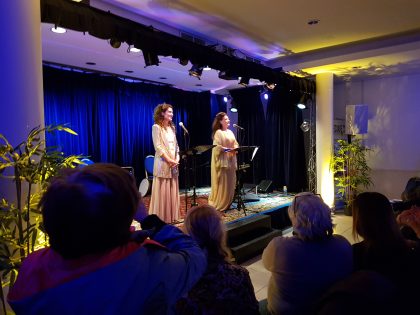
How many French cities are participating?
One of the particularities of the European Days of Jewish Culture in France is that this “festival” offers events in very large cities (Paris, Lyon, Nice, Metz, Nancy, Strasbourg, Montpellier, etc.) or medium-sized cities (Cannes, Antibes, L’Isle-sur-la-Sorgue, Cavaillon, etc.) as well as in villages. The presence of a structured Jewish community or, on the contrary, the presence of an ancient Jewish heritage trace of a Jewish community that has disappeared can lead, either way, to the organization of an event proposed in the program. So rather than cities, I would prefer to speak of places. Our objective – in line with previous editions – is to propose events in a hundred different places.
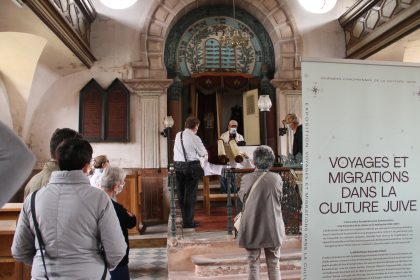
Do you see an evolution in the activities proposed and in the expectations of the public these last years?
It seems to me that the public is more and more attracted by the concerts but also by the tours, walking or cycling, linked to the discovery of the Jewish heritage in a town or a small territory.
You act for the preservation of sites, can you give us a recent example of this action?
The opening of a Jewish heritage site during the European Days of Jewish Culture is a unique opportunity to highlight the dangers to which this heritage is exposed and to take stock of its state of preservation. This motivation to draw the attention of all stakeholders (municipalities, owners, public, media) was the basis for the launch in 1996 of the very first “open house” dedicated to Jewish heritage.
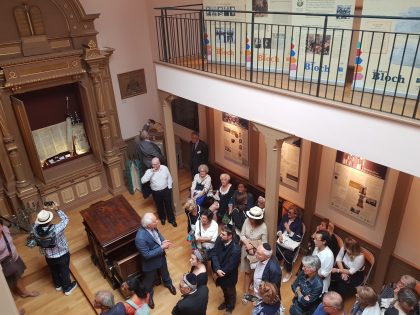
This work pays off, sometimes after many years. For example, on September 4 in Schirmeck (Bas-Rhin), the renovated synagogue – after major work to bring it up to standard and improve safety – will be inaugurated by the authorities, with the return of its Torah scroll. This scroll, miraculously saved by a soldier during the Second World War and then entrusted to a private individual, was kept for several decades in Israel until its provenance was finally established. The synagogue in Schirmeck will now function as a historical information center in connection with the memory of Nazi oppression in this area of the Bruche Valley and, in particular, the Natzwiller-Struthof camp.
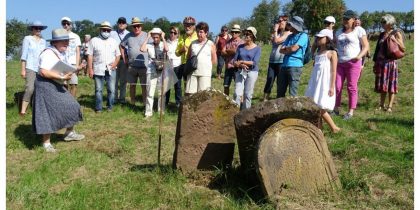
Can you tell us about a particularly memorable encounter with a visitor during previous days?
My experience is still relatively limited after only three editions of the European Days of Jewish Culture. Nevertheless, I like to be present in the field, especially in the region where I live, Alsace. I have had the opportunity to blend in with the public or, on the contrary, to intervene as a commentator during the visit. I particularly keep a very rich memory of this last experience. Seeing how people – including young children – can be so interested in understanding how a ritual bath worked in the Middle Ages never ceases to amaze and challenge me. Even if, as an amateur guide, I do my best to arouse the curiosity of my listeners. Having to interrupt a dialogue that has barely begun, because the next group of visitors is already getting impatient, is sometimes a real heartbreak…